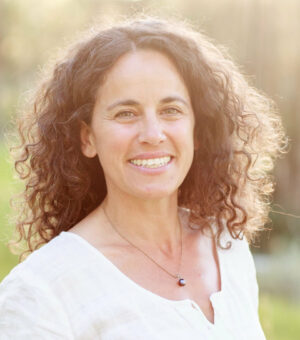Elena Bennett has been elected to the National Academy of Sciences (NAS). On May 3, the academy announced the election of 120 members and 30 international members “in recognition of their distinguished and continuing achievements in original research.”

“McGill congratulates Elena Bennett on the prestigious honour of membership to the National Academy of Sciences, which is given to the most influential and innovative thought and research leaders in the world,” said Martha Crago, Vice-Principal, Research and Innovation. “As a scholar, Professor Bennett has made transformational contributions to the field of ecosystem ecology. As a knowledge mobilizer and community partner, her work serves to deepen understanding of the relationships between people and nature.”
Membership to the NAS is a widely accepted mark of excellence in science and is considered one of the highest honours that a scientist can receive. Members include Albert Einstein, Margaret Mead, and Thomas Edison.
Bennett becomes only the fourth member of McGill to be elected to the NAS, joining Brenda Milner, Vicky Kaspi and Nahum Sonenberg.
“It is honestly thrilling and a little stunning to be elected to the National Academy of Sciences. It is an amazing honour,” said Bennett, who is jointly appointed in the Bieler School of Environment and the Department of Natural Resource Sciences. “While I think sometimes we picture award-winning scientists as brilliant loners spending long hours in the lab, my science is definitely the outcome of many inspiring and informative collaborations with colleagues, including especially all the amazing students I have lucky to work with over the years.”
Healthy partnerships benefit all
It is fitting that Bennett praises teamwork and collaboration. A leading expert in ecosystems, Bennett understands the value of partnership and strong relationships.
Research in the Bennett lab centres around questions about ecosystem services, and the benefits people obtain from ecosystems. Bennett’s areas of expertise include sustainable use and management of biodiversity and ecosystem services; multi-functional landscapes; human impacts on biogeochemical cycles; management of tradeoffs among ecosystem services, especially agricultural production and water quality; global food security, agriculture and the United Nations Sustainable Development Goals; land use change and water quality; and urban ecology.
Bennett is also the founding director of NSERC ResNet, effectively an ecosystem of ecosystem experts. ResNet is a pan-Canadian network to improve management of working landscapes for the provision of multiple ecosystem services.
Getting the word out there
It has been a heady few weeks for Bennett. In April, she earned a prestigious Guggenheim Fellowship. “I’m thinking I probably should go out and buy a lottery ticket,” she joked.
“I’m hoping to use this [NAS] honour, and the Guggenheim Fellowship, to ensure that the results of our work, and the knowledge generated, is in the hands of a wide audience, including all sorts of decision-makers and citizens,” she said.
This kind of influence and positive impact is exactly why the NAS was formed.
The NAS dates back to 1863, when President Abraham Lincoln signed a congressional charter forming the private, non-profit institution to provide the U.S. with a non-partisan council of scientific and technological leaders who could lend expertise and advice to the government. It recognizes achievement in science by election to membership and, with the National Academy of Engineering and the National Academy of Medicine, provides science, engineering and health policy advice to the federal government and other organizations.
Read the National Academy of Sciences press release.
